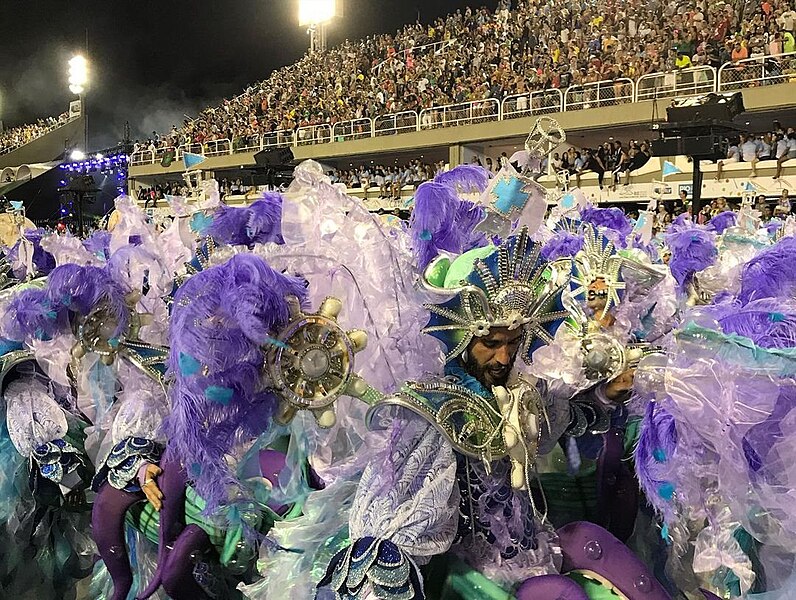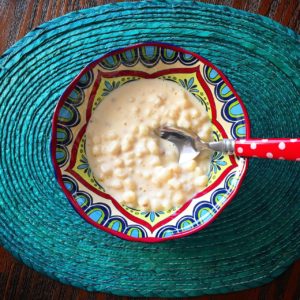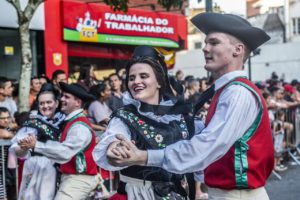Carnival in Brazil: A Vibrant Celebration of Culture, History, and Tradition
Carnival, or Carnaval in Portuguese, is one of Brazil’s most iconic and celebrated festivals, captivating millions of locals and visitors alike. Its roots are in the history, cultural diversity, and religious traditions of the country. It is an exhilarating display of music, dance, food, and joy that epitomizes the Brazilian spirit.
The Historical Roots of Carnival in Brazil
Carnival traces its origins to Europe, particularly the Catholic celebrations of Quaresma (Lent). It arrived in Brazil during Portuguese colonization in the 16th century. At the beginning, Carnival was a somber period of feasting and preparation before Lent. But over the centuries, it has evolved, incorporating African, Indigenous, and European cultural elements. Eventually Carnival transformed into the vibrant and inclusive festival that it is today.
Cultural and Religious Significance
Carnival traditionally marks the days leading up to Quaresma (Lent), a period of fasting and reflection in Christianity. It serves as a time to indulge in music, dance, and feasting before the more solemn religious observance. Beyond its religious origins, Carnival has become a cultural expression of Brazil’s rich diversity. The blending of African, European, and Indigenous influences is evident in its music, dances, and costumes.
Customs and Celebrations of Carnival in Brazil
Carnival in Brazil is synonymous with extravagant desfiles (parades), samba rhythms, and elaborate fantasias (costumes). Each major city brings its unique flair to the festivities:
- Rio de Janeiro: Home to the world-famous Sambódromo parades, where samba schools, or escolas de samba, compete in dazzling performances. Floats, or carros alegóricos, are ornately decorated, and participants don costumes adorned with feathers, sequins, and jewels.
- Salvador, Bahia: Known for its street parties, or blocos de rua, and trios elétricos, massive trucks with speakers blasting music. Axé music dominates here, with an upbeat rhythm that gets everyone dancing.
- Recife and Olinda: Celebrated for frevo and maracatu traditions. Frevo dancers wield colorful umbrellas and perform acrobatic moves, while maracatu reflects Afro-Brazilian heritage with percussion-heavy music and ceremonial dances.
- São Paulo: Similar to Rio, São Paulo hosts spectacular samba parades, showcasing the creativity of its samba schools.
Desfiles das escolas de samba
Carnival parades, desfiles das escolas de samba, are organized by escolas de samba (samba schools). These are not schools in the traditional sense, but rather community-based organizations dedicated to the art and culture of samba. During Carnival, samba schools show off their skills and compete in grand parades held at venues like Rio’s Sambódromo.
Each of escolas de samba selects a unique enredo (theme) for the parade. Inspiration for the themes may come from history, folklore, or social issues. Then they design elaborate fantasias (costumes) that reflect their chosen theme. Elaborate headdresses, bold colors, and intricate details are standard, symbolizing the extravagance of the festival. Along with the costumes, the parades include intricate and artistic carros alegóricos (parade floats). Participants from the schools perform samba music known as samba-enredo, which is specifically composed for the Carnival parade. And judges evaluate all of this, including harmonia, which refers to the visual harmony of the performance, and evolução, which refers to the timing and liveliness of the performance.
Bloquinhos
There are many smaller celebrations throughout the country as well, known as bloquinhos. A bloquinho, short for bloquinho de rua, is a small, informal street party or parade that takes place during Carnaval. These gatherings are organized by groups of friends, communities, or local organizations and are a quintessential part of Carnival celebrations, especially in cities like Rio de Janeiro, São Paulo, and Salvador.
Music, Dance, and Costumes
Music is the heartbeat of Carnival in Brazil. The rhythmic beats of samba, axé, and frevo fill the air. Samba, originating from African traditions, is the quintessential Carnival music. Its infectious beats and syncopated rhythms are paired with intricate footwork, a hallmark of passistas, the skilled samba dancers.
Regional Foods and Drinks of Carnival in Brazil
Carnival also celebrates Brazil’s culinary heritage. Feijoada is a hearty black bean stew with pork, traditionally eaten during the festivities. Coxinha is a savory snack made of shredded chicken wrapped in dough and deep-fried. Acarajé is a dish of African origin. It is a deep-fried fritter food made from black-eyed peas, filled with vatapá (shrimp paste). Drinks are of course part of the festivities. The best known is caipirinha, Brazil’s national cocktail made with cachaça, lime, sugar, and ice.
The Spirit of Carnival
Carnival is more than just a festival; it is a celebration of life, unity, and creativity. It reflects Brazil’s dynamic culture and offers a chance for communities to come together. Whether you’re marveling at the parades in Rio, dancing to frevo in Recife, or savoring a feijoada in Salvador, Carnival is an unforgettable experience. For Brazilians, Carnaval é pura alegria – Carnival is pure joy. It is a testament to the nation’s cultural richness, inviting the world to join in the celebration. As they say, Seja bem-vindo ao Carnaval! Welcome to Carnival!
Get on the road to speaking Portuguese with the Language Garage!
We hope you’ve enjoyed learning about Carnival in Brazil. If you’d like to learn more:
- Follow us on Facebook, LinkedIn, BlueSky, Twitter, Threads, Instagram, or Pinterest. We publish lots of Portuguese vocabulary, grammar, and culture notes, so it’s a great way to pick up some new vocabulary and practice.
- Check out our other posts on Portuguese language, culture, and more.
- Enroll in affordable, flexible, and personalized private online Portuguese lessons or sign up for a small group online Portuguese class.
- Create a free Language Garage account to access tons of Portuguese vocabulary, grammar, and culture.
Image Source Wikimedia Commons






